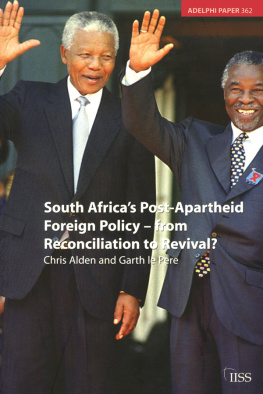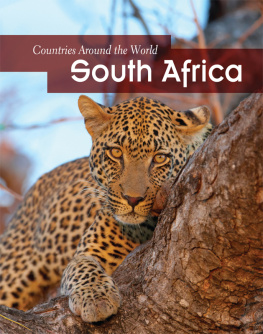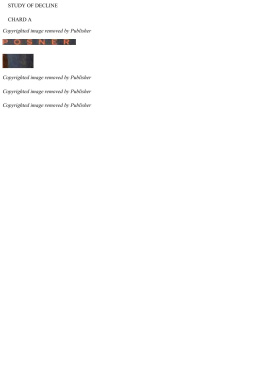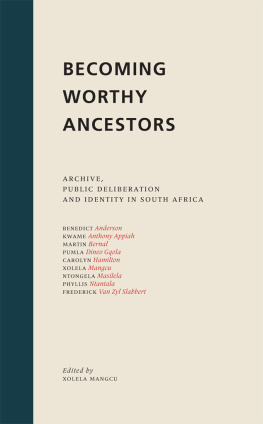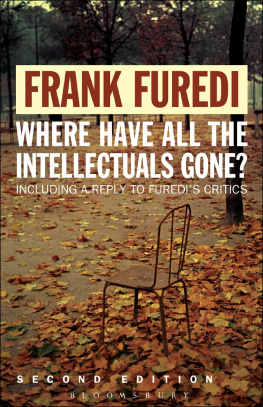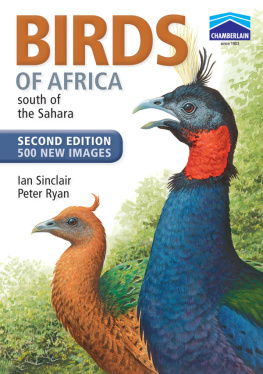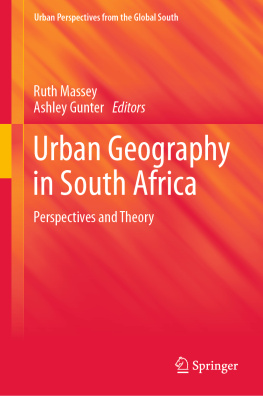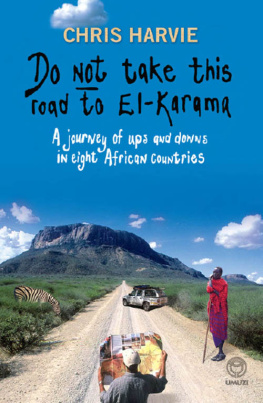Public Intellectuals in South Africa
Public Intellectuals in South Africa
Critical Voices from the Past
Edited by
Chris Broodryk
Published in South Africa by:
Wits University Press
1 Jan Smuts Avenue
Johannesburg 2001
www.witspress.co.za
Compilation Chris Broodryk 2021
Chapters Individual contributors 2021
Published edition Wits University Press 2021
First published 2021
http://dx.doi.org.10.18772/22021076895
978-1-77614-689-5 (Paperback)
978-1-77614-690-1 (Hardback)
978-1-77614-691-8 (Web PDF)
978-1-77614-692-5 (EPUB)
All rights reserved. No part of this publication may be reproduced, stored in a retrieval system, or transmitted in any form or by any means, electronic, mechanical, photocopying, recording or otherwise, without the written permission of the publisher, except in accordance with the provisions of the Copyright Act, Act 98 of 1978.
Project manager: Alison Lockhart
Copyeditor: Alison Lockhart
Proofreader: Sally Hines
Indexer: Sanet le Roux
Cover design: Hybrid Creative
Typeset in 10 point Minion Pro
CONTENTS
Chris Broodryk
Carolyn Hamilton
Luvuyo Mthimkhulu Dondolo
Pfunzo Sidogi
Lesley Cowling
Chris Broodryk
Keyan G. Tomaselli
Anna-Mari Jansen van Vuuren
Katlego Chale
Rory du Plessis
T his edited volume was funded with assistance from the Andrew W. Mellon Foundations grant for The Public Intellectual in Times of Wicked Problems, a research project hosted by the office of the Dean in the Faculty of Humanities, University of Pretoria.
I would like to thank the following individuals: Professor Vasu Reddy, Dean of Humanities, and Professor Maxi Schoeman, University of Pretoria, for supporting this volume; Heather Thuynsma, Communications Manager, Faculty of Humanities, University of Pretoria, for her skilful logistical support; Bianka Thom, University of Pretoria, for her editorial support; Roshan Cader, Wits University Press, for her guidance, support and patience throughout the development of the volume and the publication process; and the anonymous peer reviewers for their valuable feedback and insights.
The Archive & Public Culture Research Initiative (http://www.apc.uct.ac.za/), University of Cape Town, hosted a colloquium titled Public Life: Past, Present and Future on 7 August 2020, during which this publication and its contributors were put into conversation with the edited volume Babel Unbound: Rage, Reason and Rethinking Public Life (Wits University Press, 2020). This colloquium helped to streamline and crystallise several ideas in selected contributions in this book. I would like to thank the colloquium organisers Carolyn Hamilton and Lesley Cowling for their generosity.
, William Pretorius and the Public Intellectualism of the Film Critic, was partly developed through funding from the University of Pretorias Research and Development Programme.
Chris Broodryk
Pretoria
2021
P ublic Intellectuals in South Africa: Critical Voices from the Past is aimed at scholars and researchers whose academic interests and activities link with the ideas and practices of public intellectualism. The book is intended to engage with those whose work in academia is politically committed, whose research on and in the various aspects of the humanities in South Africa is dedicated to speaking truth to power, and who help to give voice and presence to those figures who have been (and possibly remain) marginalised and even silenced in South African history.
This volume ranges in scope from public intellectualism in journalism to the idea of the public intellectual in mental health, to the ways in which the practice of art and the critical response to it are in themselves acts of public intellectualism. The aim of the volume is to provide incisive and insightful discussion and analysis of instances and practices of public intellectualism.
The ideas and arguments in this volume provide original research on key movements and figures in different histories of public intellectualism in South Africa. Each chapter offers a particular inflection on and demonstration of the public intellectual and their activities in South Africa as located in acts of journalism, storytelling, the arts and the larger context of the humanities. Taking the different historical contexts into account, the historical figures discussed in each chapter can be considered politically progressive.
For the most part, this volume follows the historical approach of Mcebisi Ndletyanas African Intellectuals in 19th and Early 20th Century South Africa, which highlights how material collected from oral tradition or orature tends be to complex. of this volume by Luvuyo Mthimkhulu Dondolo.
Njabulo S. Ndebele wrote in the foreword to Megan Jones and Jacob Dlaminis Categories of Persons: Rethinking Ourselves and Others: The space of expanding and interacting identities might just be the space for a future politics, one founded on and comfortable with the creative uncertainties of the interaction of multiple identities. The more varied the interactions, the more robust will be the politics founded on them. It is our hope that this volume will inform constructive conversations around these identities and the robust politics that follow from these discursive engagements.
SPEAKING OF DEMOCRACY: PUBLIC INTELLECTUALISM AS AN INTERPRETIVE PRISM AND ACTIVIST PRINCIPLE
In her book on South African writer J.M. Coetzee, Jane Poyner lists the influence of Greek thinkers (Aristotle, Socrates), as well as later thinkers outside the Western tradition (Edward Said, Arundhati Roy, Wole Soyinka) on the idea of (public) intellectualism. In South Africa, the acts of writing and of intellectualism under the conditions of colonialism and then apartheid have been profoundly politicized to the extent that speaking out against those in power might have led to punishment and prohibition.
In this current volume, the idea of the public intellectual is used as an interpretive prism for specific individuals, their public and the parameters of their context, and also of selected written and visual texts. In some contexts, though, the idea of the public intellectual is also meant to evoke an activist principle in which the political commitment of the intellectual is emphasised.
DEFINING PUBLIC INTELLECTUALISM
Poyner argues: The intellectual, as Coetzee suggests, in supporting his or her own position with reasoned and rationed argument, is ready to accept the reasoned and rationed criticism of fellow intellectuals (and others), indeed, sees this as his or her social function: to criticize and be criticized while, importantly, imparting expertise or knowledge with the purpose of effecting change.
In defining and discussing the notion of public intellectualism, the ur-text is Edward Saids renowned Representations of the Intellectual.




